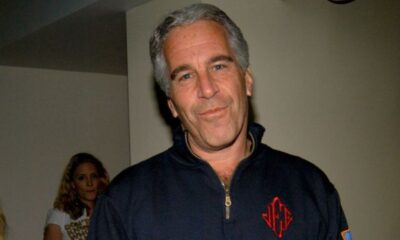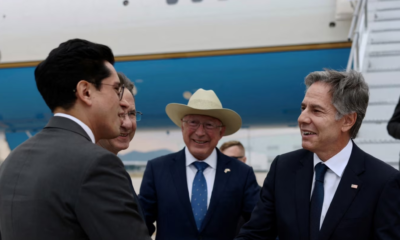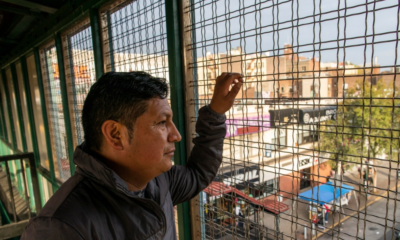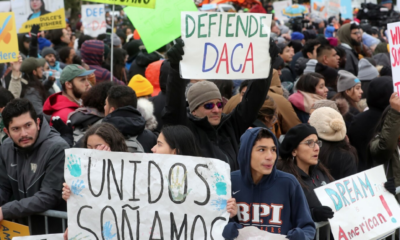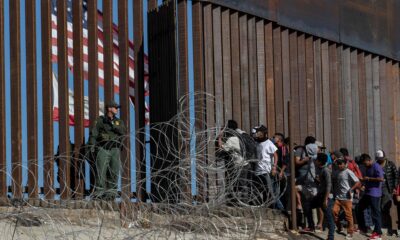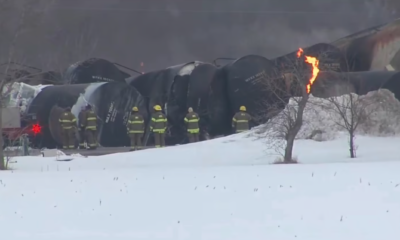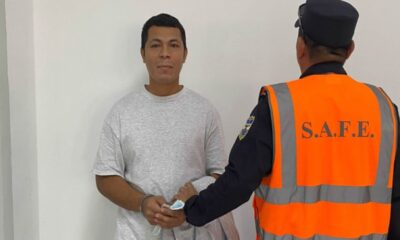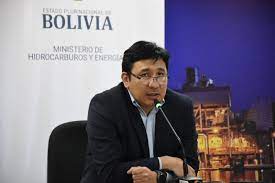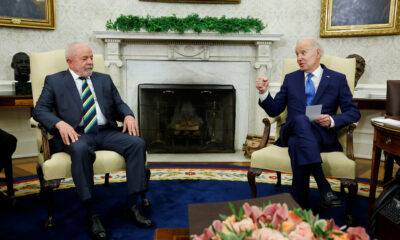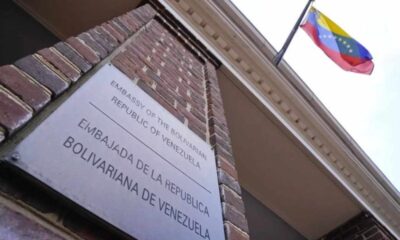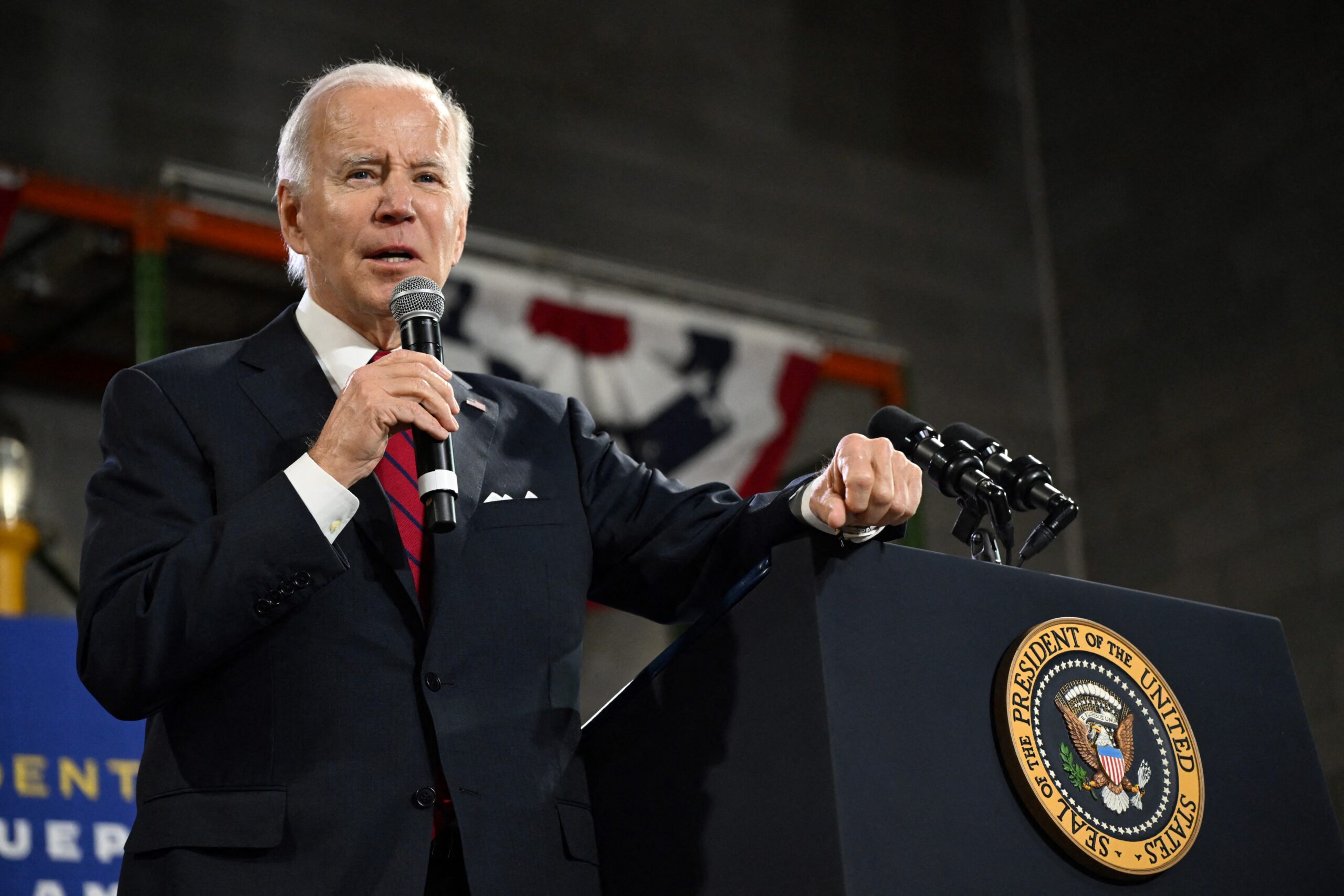International
US: Health Secretary criticizes judge’s abortion ruling
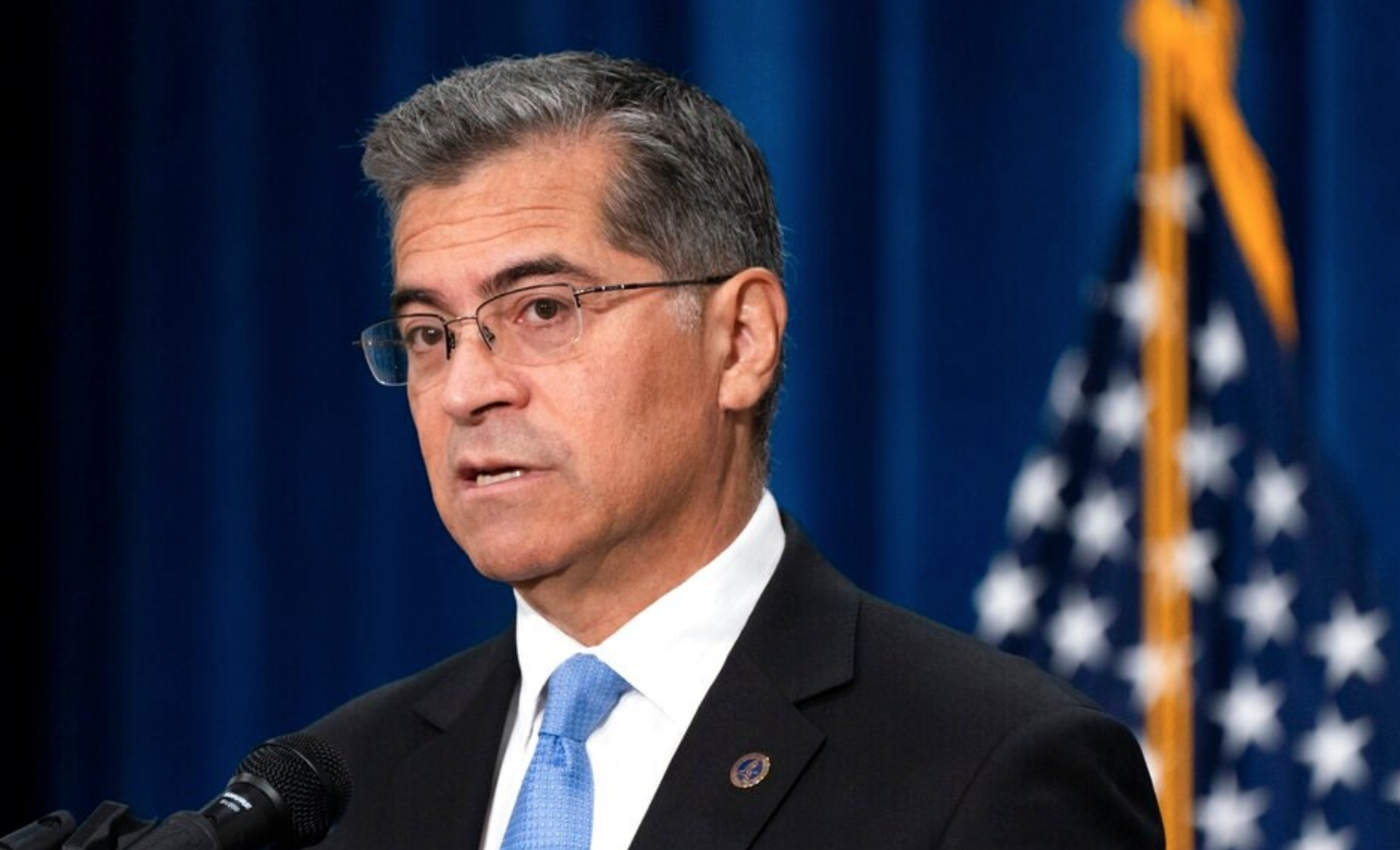
April 10 |
The top U.S. health official said Sunday that a court ruling threatening the availability of an abortion pill is “not America” and did not rule out challenging the judge’s orders if necessary.
“We want the courts to overturn this irresponsible ruling,” Health and Human Services Secretary Xavier Becerra told CNN’s “State of the Union.”
“We do want women to continue to have access to a drug that has been proven safe. Millions of women have used this drug around the world,” he added.
He emphasized that for now, women do have access to mifepristone after a federal judge in Texas appointed by then-President Donald Trump, Matthew Kacsmaryk, on Friday put his ruling on hold for a week so the federal government could file a motion against it. The drug was approved in 2000 by the Food and Drug Administration (FDA), which is overseen by the Department of Health and Human Services, which Becerra heads.
President Joe Biden has stated that his administration will oppose the Texas ruling. Kacsmaryk’s 67-page ruling gives the government seven days to appeal.
“Our intention is to do everything we can to keep the drug accessible, not just a week from now but ultimately going forward, because mifepristone is one of the safest and most effective drugs we’ve seen in the last 20 years to help women in their health care, especially in care related to an abortion,” Becerra said.
Asked whether he might recommend that the FDA ignore a court ruling, Becerra replied, “Everything is on the table.”
There is uncertainty about the abortion pill, the most common method of abortion in the United States, because of two conflicting court rulings – one in Texas and one in Washington – on the legality of mifepristone.
The Kacsmaryk decision, ordering a pause to official approval of mifepristone, contradicted decades of scientific recommendations. But a near-simultaneous ruling by Judge Thomas O. Rice in Washington, a Barack Obama appointee, orders authorities not to make any changes that would restrict access to the drug in at least 17 states where Democrats filed lawsuits to ensure such access.
Becerra said Kacsmaryk’s ruling could have dire repercussions for the legality of any FDA-approved drug – such as insulin or Alzheimer’s drugs – as it seeks to “turn upside down” the entire FDA approval process.
Becerra acknowledged that there is “a good chance” that the case will end up being decided in the Supreme Court, which last year overturned Roe v. Wade, which gave women the right to decide about their pregnancy.
“If a judge decides to place his or her judgment or preference over the opinion of health professionals, what drug will be exempt from any court challenge? That is why we have to go to court,” Becerra said.
In an appearance after Becerra on CNN, Rep. Tony Gonzales, R-Texas, stated that “it’s important that we take care of women” and “have real discussions about women’s health care” but “you have to get out of this abortion conversation. Women have a lot of other issues that have nothing to do with abortion. … Let’s talk about other things that are going on in this world.”
International
DHS Secretary Kristi Noem’s Purse Stolen in D.C. Restaurant Heist

The purse of Kristi Noem, Secretary of the Department of Homeland Security, was stolen on Sunday night at a restaurant in Washington, D.C., Fox News Digital confirmed through several agency sources.
The handbag, taken by a white male wearing a mask, reportedly contained $3,000 in cash along with personal documents, including her passport, keys, driver’s license, and DHS badge, according to an agency spokesperson.
“Her entire family was in town, including her children and grandchildren. She was celebrating her retirement by treating them to dinner, activities, and Easter gifts,” the spokesperson added.
Crime continues to be a significant issue in the U.S. capital, particularly theft. However, violent crime reached its lowest level in 30 years last year, according to the Office of the Attorney General at the time.
International
Pope Francis: The Quiet Architect Behind the U.S.-Cuba Thaw

When then-U.S. President Barack Obama and Cuban President Raúl Castro announced the reestablishment of diplomatic relations in December 2014—after decades of hostility—there was a third figure present in both speeches: Pope Francis.
This thaw in U.S.-Cuba relations—later reversed by Donald Trump—was the result of behind-the-scenes negotiations personally encouraged by Pope Francis, who passed away on Monday at the age of 88, just over a year after becoming head of the Catholic Church.
Upon learning the news of the breakthrough, the pontiff humbly stated, “This was made possible thanks to the ambassadors and to diplomacy,” which he called “a noble, very noble job.”
In 2015, months after the announcement, Raúl Castro visited the Vatican and met with the pope. Over time, Castro developed a fondness for Francis that he never had for his predecessors, Benedict XVI and John Paul II. “If the Pope continues talking like this, sooner or later I’ll start praying again and return to the Catholic Church—and I’m not joking,” said the younger Castro, who, like his brother Fidel (1926–2016), had been educated by Jesuits—the same order to which Pope Francis belonged.
Pope Francis visited Cuba later that year. Just days before his arrival, the Cuban government announced the pardon of 3,522 common prisoners as an act of clemency.
While in Havana, the pope met with Fidel Castro, who gave him a first edition of the book Fidel and Religion by Brazilian friar and liberation theologian Frei Betto.
Criticism from the Opposition
Francis’s diplomatic approach also drew criticism from parts of the Cuban opposition. In a 2022 interview with Univision, the pope revealed he had “a human relationship” with Raúl Castro.
International
Dominican Republic Declares Three Days of Mourning for Pope Francis

Dominican Republic President Luis Abinader has declared three days of national mourning starting Tuesday following the death of Pope Francis, who passed away on Monday at the age of 88 in his residence at the Casa Santa Marta.
In an official decree, Abinader highlighted the pope’s legacy “as a global leader who promoted significant reforms within the Catholic Church and was known for his humility, openness to dialogue, and commitment to peace among nations.”
During the mourning period, the national flag will be flown at half-staff at military facilities and public buildings.
According to a statement from the Office of the Presidency, although Pope Francis never visited the Dominican Republic during his papacy, he maintained a close relationship with the country. He expressed solidarity and empathy during difficult times, including offering prayers for the victims of the recent tragedy at a Santo Domingo nightclub on April 8, which claimed 232 lives and left more than 180 injured.
-

 Central America5 days ago
Central America5 days agoNicaraguan Exiles to Mark 7th Anniversary of 2018 Protests with Global Commemorations
-

 International5 days ago
International5 days agoDominican ‘False Hero’ Arrested for Faking Role in Nightclub Collapse That Killed 231
-

 Central America4 days ago
Central America4 days agoUN complaint filed against Costa Rica over detention of migrant children
-

 International4 days ago
International4 days agoACLU seeks emergency court order to stop venezuelan deportations under Wartime Law
-

 Central America2 days ago
Central America2 days agoSenator Van Hollen Meets with Deported MS-13 Member in El Salvador; Trump and Bukele React
-

 International3 days ago
International3 days agoThousands rally nationwide against Trump’s threat to U.S. democracy
-

 International2 days ago
International2 days agoPope Francis Appears for Easter Blessing, Calls for Peace and Religious Freedom
-

 Central America19 hours ago
Central America19 hours agoCardinal Rodríguez to Attend Funeral of Pope Francis: “He Was Very Dear to Me”
-

 Central America19 hours ago
Central America19 hours agoNicaragua’s Ortega and Murillo Mourn Pope Francis, Acknowledge ‘Difficult’ Relationship
-

 International19 hours ago
International19 hours agoDominican Republic Declares Three Days of Mourning for Pope Francis
-

 International19 hours ago
International19 hours agoDHS Secretary Kristi Noem’s Purse Stolen in D.C. Restaurant Heist
-

 International19 hours ago
International19 hours agoPope Francis: The Quiet Architect Behind the U.S.-Cuba Thaw






























